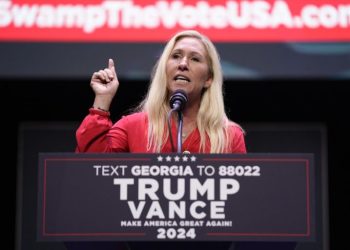In a significant move aimed at addressing the mounting pressure over rising prices, US President Donald Trump has signed an executive order that exempts a range of food products from tariffs. These products, including coffee, bananas, and beef, are set to escape the sweeping import taxes that had previously been imposed under the Trump administration’s trade policy.
The decision comes on the heels of a tough election for the Republican Party, where the cost of living became a focal point in the public discourse. Although Trump had downplayed concerns about inflation in the past, the rising cost of living and food products has become a more pressing issue in the wake of the party’s underperformance in the recent elections.
Exemptions from Tariffs
The White House has released a list of more than 100 food products that will no longer be subject to tariffs. These items include coffee, cocoa, black and green tea, vanilla beans, and beef products. The list also includes fruits such as avocados, bananas, coconuts, and pineapples, along with various spices, nuts, grains, and seeds like cashews, macadamia nuts, and barley.
Reasons Behind the Exemptions
The Trump administration has stated that these goods cannot be produced in sufficient quantities domestically, which is why they were exempted from the tariffs. This exemption is part of a broader effort to ease the impact of rising food prices on consumers and prevent further escalation of costs.
Trump, who has long defended his tariffs as a necessary tool to reduce the US trade deficit, has faced growing criticism over their impact on domestic prices. Despite his assertion that tariffs would not raise consumer prices, inflation has become a major political issue. In particular, the rising cost of beef has led to calls for greater scrutiny of the meatpacking industry.
Trump’s Approach to Trade and Tariffs
Trump’s administration has emphasized that these tariff exemptions are a response to the concerns about food prices. The exemptions were announced alongside a pledge to lower import taxes on coffee and bananas as part of trade deals with four Latin American countries. This move is seen as an attempt to balance trade interests while addressing domestic price pressures.
Trump himself remarked that the decision to exempt certain foods would lead to lower prices for products like coffee, which had been facing price hikes. According to the President, this rollback was necessary to prevent further price increases and to maintain the affordability of essential food items.
Impact on Consumers and Economy
Economists have warned that while the exemptions may alleviate some price pressures in the short term, companies could still pass the costs of tariffs onto consumers in other ways. The broader inflationary trend, driven by various factors including global supply chain disruptions, continues to impact everyday goods. However, the exemptions are expected to provide some relief to households that have been feeling the sting of rising grocery costs.
In another effort to reduce food prices, the Trump administration has also promised a 20% reduction in coffee prices through its agreements with Latin American countries. This move has been part of a broader strategy to manage trade relations while focusing on the domestic impact of tariffs on everyday products.
Conclusion
The exemption of these food products from tariffs marks a reversal in the Trump administration’s hardline stance on trade. While the administration maintains that tariffs are essential for reducing the trade deficit and encouraging American production, the latest exemptions reflect the need to balance political pressures with economic realities. The impact on consumers will be closely monitored in the coming months, especially as inflation continues to influence everyday expenses.












